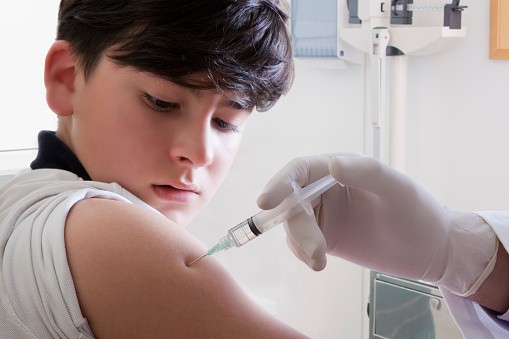Several types of treatment have been used for coronavirus patients such as remdesivir and hydroxychloroquine while scientists around the world are still developing a vaccine. A study was recently published saying that the tuberculosis vaccine that children routinely get may help reduce the number of deaths caused by the virus.

Tuberculosis is caused by harmful bacteria that severely attacks the lungs. Similar to coronavirus, TB can be spread in the air through coughing, sneezing, or talking.
Recently published in the Proceedings of the National Academy of Sciences journal, a team reviewed several factors of patients all over the world. Measuring the vulnerability of populations to the virus was associated with education, income, health services, as well as age distribution.
Professor Luis Escobar from the College of Natural Resources and Environment at Virginia Tech University said that the tuberculosis vaccine has protected people from several other respiratory viruses. They found that countries more Bacille Calmette-Guérin (BCG) tuberculosis vaccines had lower coronavirus mortality rates.
'In our initial research, we found that countries with high rates of BCG vaccinations had lower rates of mortality,' said Escobar. 'But all countries are different: Guatemala has a younger population than, say, Italy, so we had to make adjustments to the data to accommodate those differences.'
For example, they saw a significant difference between East and West Germany which had separate vaccine plans per region. Senior citizens in the west had three times the mortality rate than the east where more people received the BCG vaccine when they were younger. The BCG index had indicated 'a 10.4% reduction in COVID-19 mortality,' the authors wrote.
Testing for Vulnerability
Part of those that reviewed the study were researchers from Yale University, Connecticut. In their own study, they required college dormitories to go through screening tests at least every three days to avoid outbreaks on campus. With a model included 5,000 students in the span of a semester of 80 days, they measured the vulnerability of students getting infected on campus, going downtown, or from their visitors.
The team noted how crucial it is for testing laboratories to be reliable, timely, and efficient in communicating results to students for infected individuals to become isolated as soon as possible. They also urged other universities to be ready to close down dormitories on the occasion of a campus outbreak.
Read Also: Asymptomatic and Presymptomatic People Cause the Most Coronavirus Infections
Linking Tuberculosis Vaccines and COVID-19
Carolina Barillas-Mury, who helped gather data and specializes in mosquito-borne diseases understood that if the evidence is found to link coronavirus to the BCG vaccine, production will have to cope up accordingly. If the BCG vaccine is protective, production would have to increase to meet the sudden spike in vaccine demand in order to prevent a delay in distribution to countries that very much need it to fight tuberculosis," she said.
Escobar explained, 'the purpose of using the BCG vaccine to protect from severe COVID-19 would be to stimulate a broad, innate, rapid-response immunity.' The World Health Organization (WHO) has yet to confirm if the TB vaccination is effective as clinical trials have begun. They are currently testing the BCG vaccine if it can prevent healthcare workers from COVID-19 infection.
Read Also: [COVID-19 Update] US Preps For Coronavirus Vaccine, Invests $42M in Syringe and Needle Production










